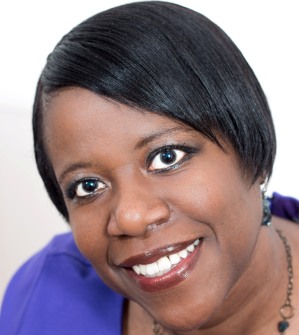Carol Stewart
If you met a woman who left school aged 16, with just 3 O levels, what would you expect of her?
Some people might have low expectations of a woman with this kind of academic history. But in the case of my Page 1 Woman, they’d be wrong, because her capabilities belie the qualifications with which she left school.
This woman has proven that your academic performance at school need not set the tone for the rest of your life. In fact, she’s proven that the school environment and unchallenging teachers can limit the brightest amongst us. And leaving and finding a thirst for continuous learning can be the thing that spurs you on. So it was for Carol Stewart, director of ‘Abounding Solutions’.
Despite an unpromising start academically, she developed knowledge and skills which propelled her into a 28 year career in the Ministry of Justice (MOJ) where she worked her way up from clerical assistant to senior manager with responsibility for 4 London Magistrates’ Courts.
Despite her original vision of staying in her professional comfort zone and retiring graciously with a civil service pension and a gold watch, she took a risk and opted for a life change in her mid-40s. In taking voluntary redundancy and making a complete career change, her actions reflected the desire of many women like herself seeking change. Hardly surprising therefore that this has become her business focus.
Quiet and unassuming, energetic and determined, in just 2 years, Carol’s taken ‘Abounding Solutions’ from obscurity to coaching internationally. Here’s my Page 1 Woman in her own words.
Describe your work and what you do
Carol Stewart: I’m a personal development, career and business coach helping women who are unhappy at work but too scared to do anything about it, to develop the confidence to make a career move and do something they love. This could be a complete career change or climbing the corporate ladder and smashing through the glass ceiling. Or it could even be exiting the corporate environment and starting their own businesses. I recognised that many women aren’t achieving their full potential and we have so much within us that we’re not tapping into. ‘Abounding Solutions’ is my main business.
I do a couple of other things too. I run an informal networking and mentoring group, ‘The Ladies Business Brainstorming Club’ on the last Tuesday of the month. Women come along and work towards their career or business aspirations plus we have a different guest speaker each month.
I also present ‘The Power of a Woman’ on Astute radio. I interview women who’ve either overcome adversity or they’ve broken the mould and share their stories to help inspire other women.
Also, I’ve a passion for helping young people with their development and I’m the secretary for a registered charity, a community youth group that provides creative activities for young people. In addition to all that I’ve recently become a mentor for the Cherie Blair Foundation, working with women entrepreneurs in developing countries.
What essential steps did you take to get to where you are today?
Carol Stewart: It’s been about continuous learning, self-development and constantly stepping out of my comfort zone, seizing opportunities and going for them.
Since leaving school, I’ve always done some sort of learning. It was cool to not be brilliant at my school so I could have done a lot better than I did. I remember being bright and in the top maths set but most of my friends weren’t and I wanted to be with my friends. I struggled a bit with Maths and rather than telling the teacher that I didn’t really get it I asked if I could get moved down a set. They didn’t look at what I was struggling with and try and help me. They just moved me down to where my friends were. Despite being in the lower set and joking around in class, I got good grades for maths.
Once I started working, I realised that I had this desire for knowledge. I used to go to night school and took courses ranging from typing, management studies and latterly a Masters in Coaching Psychology – constant learning over the years. Even when I had my son, I was working full time and going to college two nights a week. I look back and think how did I manage it? But I had this desire to learn and create a better life for myself and my son.
I was a first line manager in the courts but wanted to be a solicitor. So I did the Legal Executive Course before being offered a job heading up the conveyancing department of a well-known solicitors firm. It would have meant a salary drop although I would eventually earn more than I could ever earn working in the courts. But I was a single mother at that time with a mortgage and I didn’t want to take the risk of giving up a family friendly organisation. I didn’t go for it. But it made me decide to pursue a leadership and management career in the MOJ.
Another essential step was getting out of my comfort zone and moving from Sheffield to London, aged 19. A whole new world opened. It was the first time I’d seen black people working in places like the bank and even McDonald’s. In Sheffield, back then, you didn’t get that. I was very fortunate to have got the job in the magistrates’ court because I was the only black person there. So then to come to London and see people who looked like me in positions of achieving great things was an eye opener. That was probably what helped me to look at what I could achieve.
What was the most significant thing that you did as a black woman that got you into your current position as a business owner?
Carol Stewart: Making that decision to start my own business after almost 28 years of working in an organisation. It opened up a new world to me and is the most significant thing that I’ve done in my career. And being a black woman, it made me realise there are no limits. Before, I never used to let anything stop me from going for promotion but I played it safe by staying within the same organisation. Stepping out of the comforts of that organisation, has helped me see that the only limitations I have are in my mind.
So what would you say was your greatest challenge?
Carol Stewart: I think it was overcoming my own beliefs of I’m not good enough. When I was a child I lacked confidence and was quite shy. In my 20s, when my son was 7, I became a single mum. And I didn’t want to get labelled as a stereotypical single mum. I wanted my son to be bold and go for opportunities.
Through a lot of self-development work I realised that I didn’t actually lack confidence. If I did, I wouldn’t have moved down to London, nor done some of the things that I’d done. I realised that I was mistaking being quiet for lacking confidence. Once I’d accepted that I was quiet and confident it enabled me to overcome a lot of my self-limiting beliefs and recognise that I was good enough.
It reared its head again when I got promoted from junior manager to senior manager in a relatively short space of time. First, I got promoted to a temporary senior management post and I always signed off my emails as ‘acting’. And then my line manager challenged me with, “You’re not ‘acting’. You were interviewed, got the job and you’re doing it so why are you putting ‘acting?’ That changed my perspective. I took off the ‘acting’ and thought, I’m actually doing the role.
When they expanded the post and made it permanent and I got it, I thought, “They’re going to realise their mistake. I shouldn’t be here doing this big role.” Back came that person who wasn’t good enough. But I quickly realised that I was self sabotaging. I said to myself, “I went through a fair and open recruitment process and if they think that I’m good enough then I am.”
What was your most revelatory moment?
The most revelatory thing has probably been more in terms of starting my business. I don’t have to pretend to be something that I’m not. I can just be who I am and be confident in being her.
Working in the courts, I used to feel sometimes at meetings with the middle class, highly educated judiciary, that I couldn’t be my true self because of the class difference. I was a black single mum, who never went to university until I left employment and did my masters in coaching psychology. If I were to go back now, I wouldn’t try and hide any of that. That’s me. That’s who I am.
What vital tool or resource has been crucial to getting to where you are to your success?
Carol Stewart: I’d say there’s been a combination of things that have worked together. It started with my parents, their strong moral values, their hard work and determination, which they’ve instilled in me.
That inner voice that gave me the thirst to learn, develop and seek opportunities. And the mentors and coaches that I’ve had, the people that have been role models and the constant learning that I’ve done over the years.
What does it mean to you, being a leader?
Carol Stewart: It means creating a vision and helping others to buy into that vision whilst empowering them to achieve their own vision. And that is one of the things I get great pleasure from; seeing people I’ve managed or coached achieving greater things than me.
I remember one person saying to me in one of the locations that I worked that I was ‘like a breath of fresh air’. Things like that help me to see the impact that I’m having on others. One of my lecturers said, “You can lead an army into battle but you can’t manage an army into battle.” That signifies, for me, the difference in being a manager to being a leader.
What difference does it make, being a black woman leader?
Carol Stewart: As a black woman and a single mum I always felt that I had to prove that I deserved my seat at the table. Because although the organisation that I worked in had many women senior managers very few were black. And there weren’t many that were single mums. When I learnt that I could be my authentic self I stopped feeling I had to prove myself and that I deserved a seat at the table.
As a black woman, I bring my particular perspectives, my experiences and my journey, particularly of going for progression and making the decision to pursue a career as a leader. It helps me understand the challenges faced by women and black women in particular and sharpens my ability to empathise and my leadership skills.
What would you say are your top tips for women who want to lead in their field?
Carol Stewart: Continuously learn and develop. Be true to yourself. Realise that you have limitless possibilities so don’t let your fears, your insecurities hold you back or other people imposing their limiting beliefs on you. Get support if you need it – coaches mentors, sponsors. Don’t get complacent and stuck in a comfort zone. And be humble. Don’t let leadership go to your head because then it becomes more about you rather than about doing something great for other people.
Find out more about Abounding Solutions by clicking here.
What do you think of Carol Stewart, my Page 1 Woman? Leave your comment below.
And share it on Twitter, Facebook and Google +. Yay!
Thanks as always.

